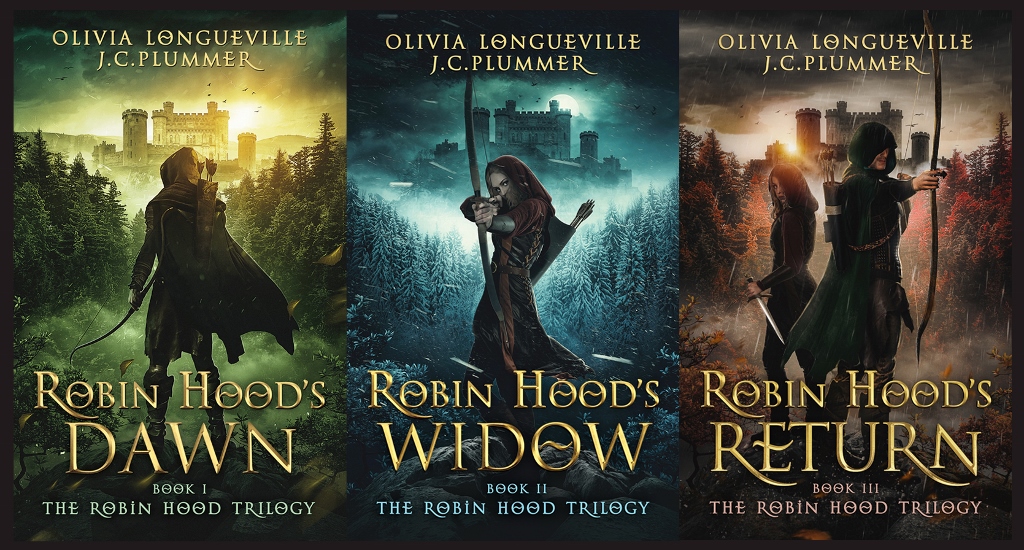
General Trilogy Bonus Material:
There are a number of historical figures who appear in the Robin Hood Trilogy.
Book 1: Robin Hood's Dawn (in order of appearance)
Stephen of Blois, King of England
William of Blois, Count of Boulogne and Mortain, Earl of Surrey
Adela of Champagne, Dowager Queen of France
Philippe II, King of France
Prince John, "the Lackland"
Richard the Lionheart, King of England
Sir André de Chauvigny, Lord of Châteauroux and second cousin to King Richard
Sir William de l’Etang
Sir Baldwin de Béthune
Hugh III, Duke of Burgundy and first cousin to King Philippe II
Hubert Walter, Bishop of Salisbury
Ranulphus Besace, King Richard's physician
We will meet Queen Eleanor, Duchess of Aquitaine and Dowager Queen of England, in Book 2, Robin Hood's Widow!
Here is a simplified Family Tree of William the Conqueror's descendants:
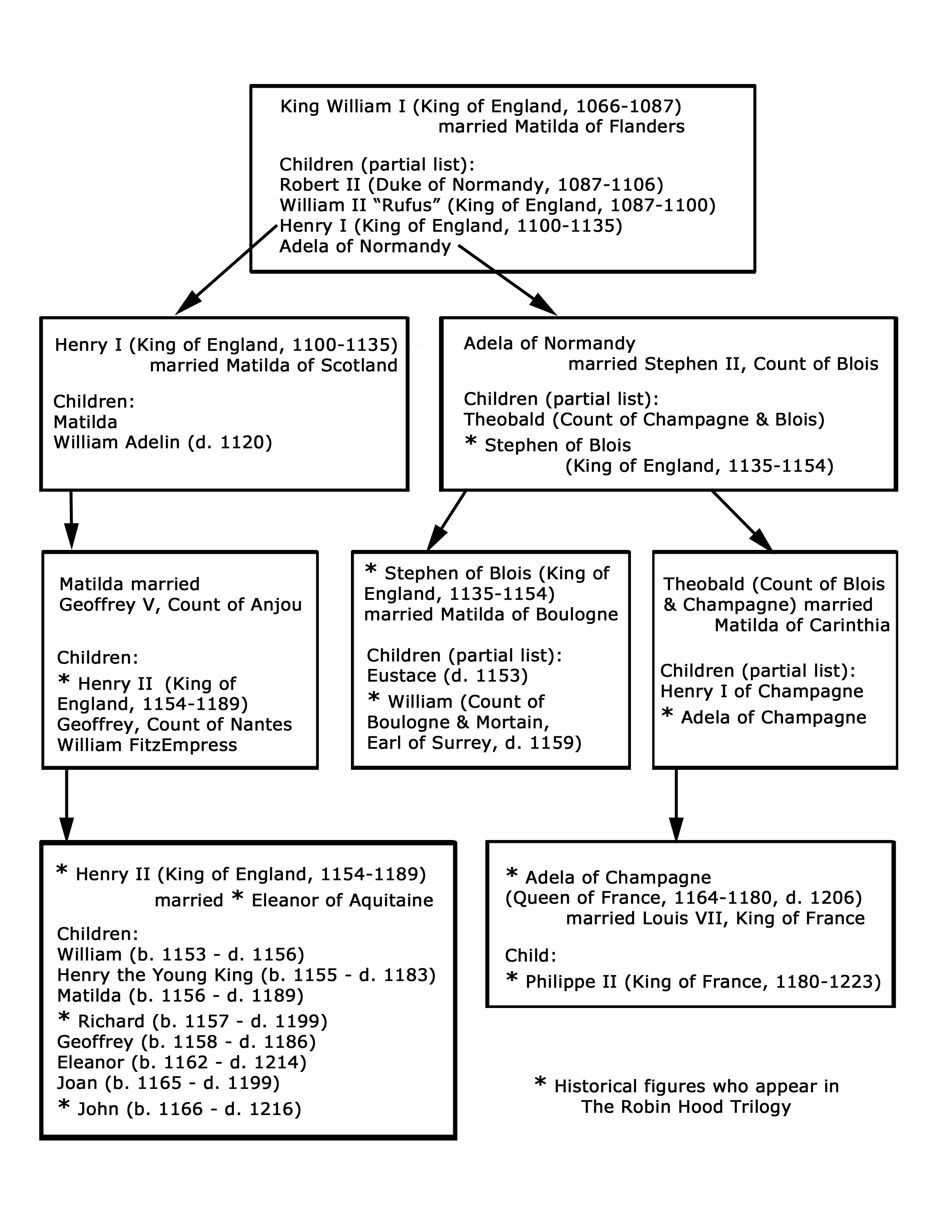
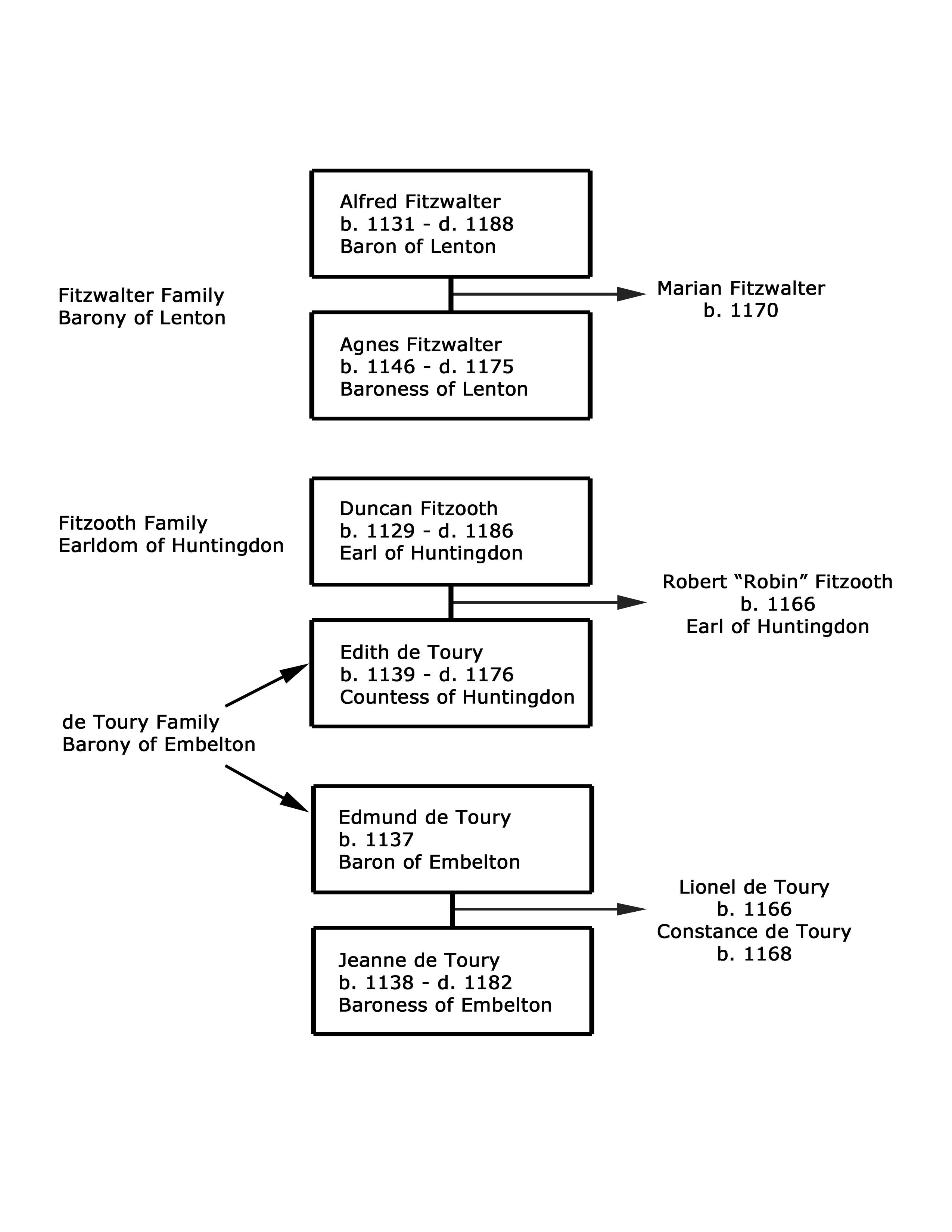
We love Greek mythology almost as much as we love the Robin Hood legend and the 12th century!
There are many parallels in the trilogy between the story of Odysseus and Robin.
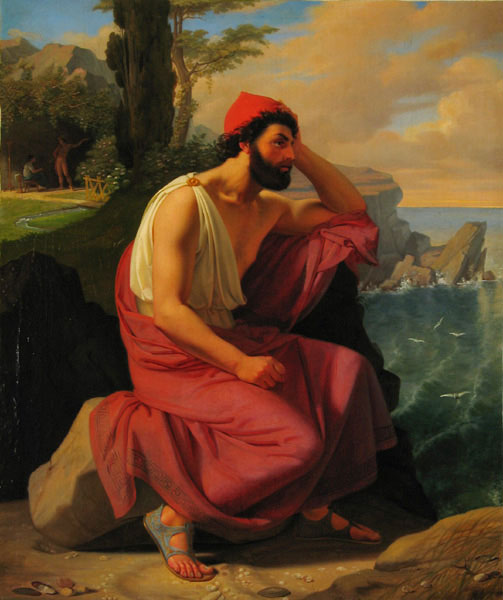
Odysseus was the King of Ithaca, who was called by his High King, Agamemnon, to wage war against Troy. Known as “Odysseus the Resourceful,” it was his strategy of the Trojan horse that resulted in the victory of the Greeks over Troy. Odysseus was anxious to return to his wife, Penelope, but his voyage home was fraught with fantastical dangers and adventures. His story is known as the Odyssey. He was gone from Ithaca for twenty years, and many believed that he was dead. He returned in disguise and defeated the men who were pursuing his wife by winning an archery contest where he demonstrated his amazing skills with a bow that only he could string.
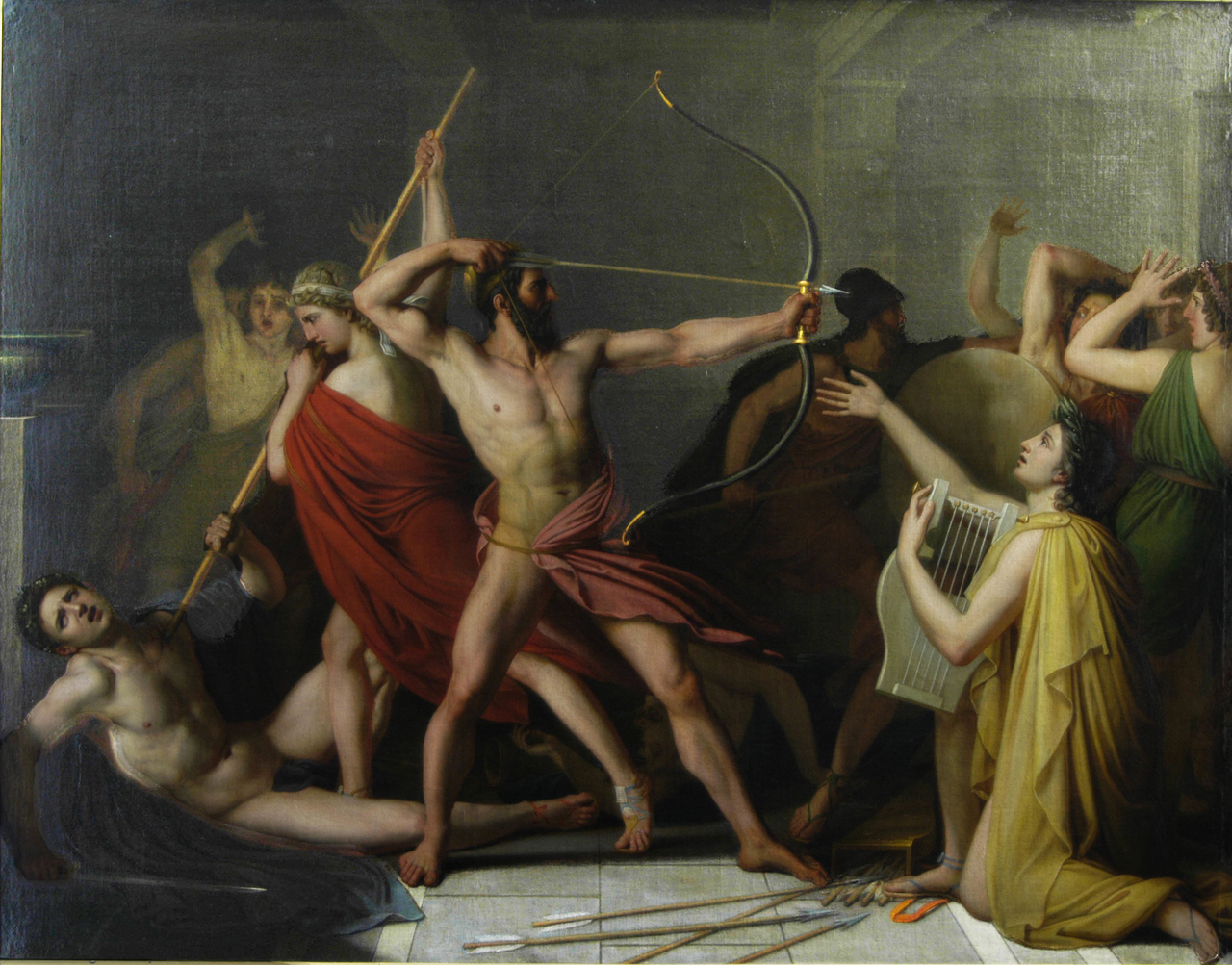
Penelope faithfully waited for Odysseus' return, and she refused to remarry when everyone else was convinced that Odysseus had died and would not return. Pursued relentlessly by a band of unwanted suitors, she delayed any decision to remarry by weaving a shroud for her father-in-law by day, only to unravel her work at night. When her ruse was discovered, she devised an archery contest that only Odysseus could win. He returned just before the contest and won it before slaying the unwanted suitors.
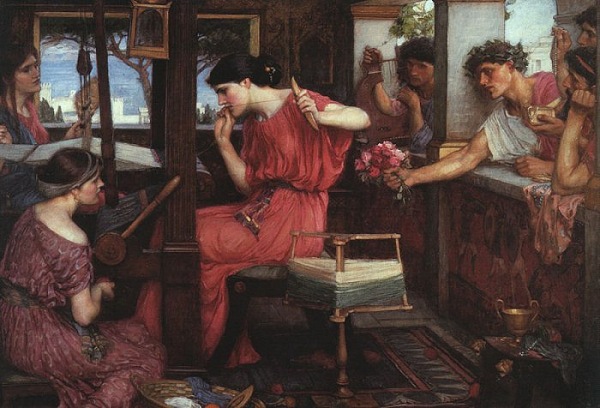
Another name from Greek mythology that appears briefly in Robin Hood's Dawn is Circe. We could not resist a reference to the witch who poisoned men with her "cup of enchantment," turning them into pigs. With the help of Hermes, Odysseus was able to defeat her magic and force her to restore his men to human form.
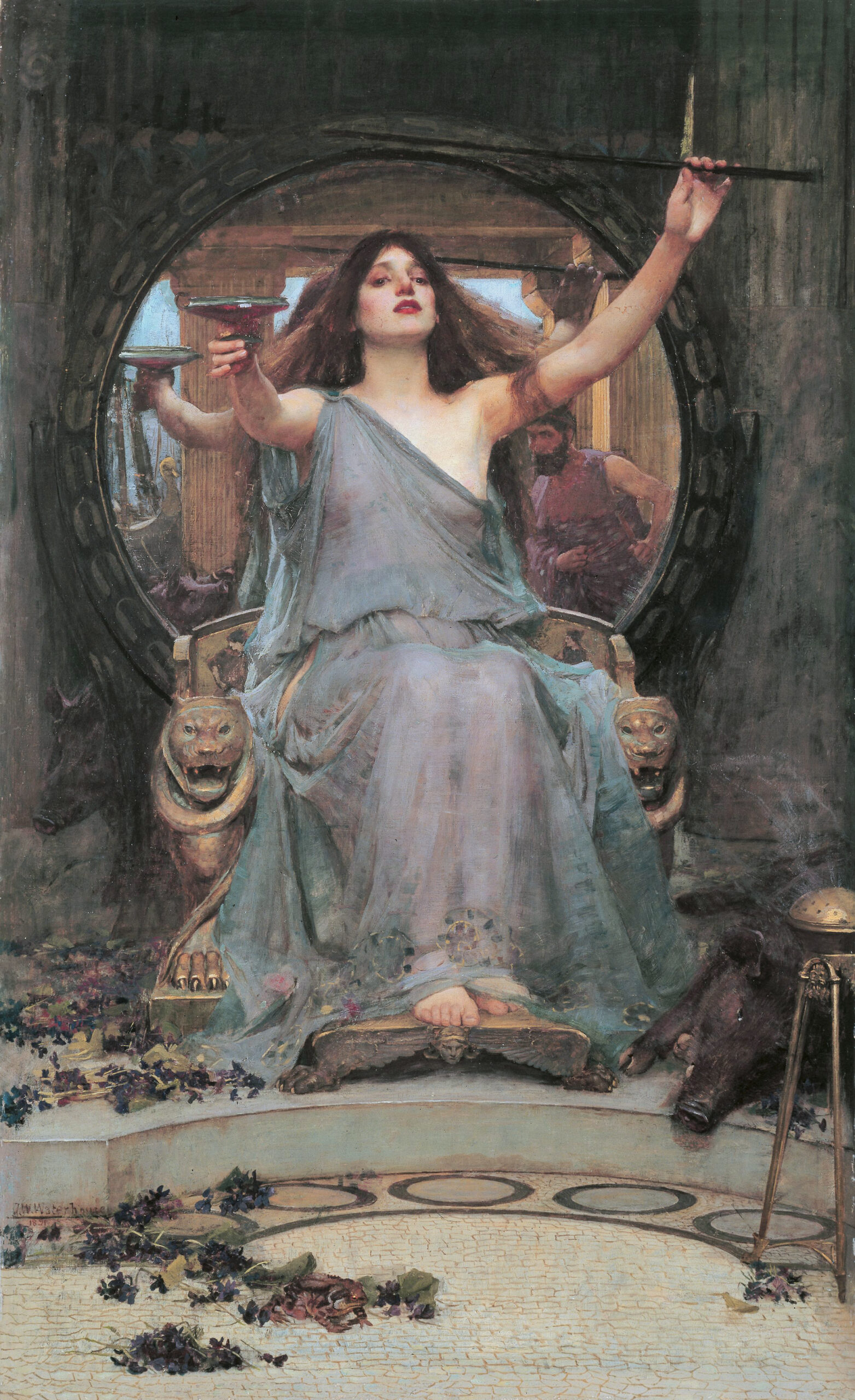
A few more names and terms that you will find in the Robin Hood Trilogy:
Achilles' heel: a small, but fatal, weakness; a vulnerability in an otherwise invincible opponent which will lead to the opponent’s downfall. It can refer to any type of weakness – not just a physical vulnerability.
Hades: 1) the god of the underworld where the dead lived. 2) A name for hell. This use is not capitalized.
Morpheus: the god of sleep and dreams. The phrase, “in the arms of Morpheus” simply means that the person is asleep. Today, the narcotic morphine can trace its name to Morpheus.
Mount Olympus: the location where the gods lived.
Orpheus: a talented musician and poet. While still living, he descended to the underworld in hopes of rescuing his dead wife, Eurydice, from Hades. He was given permission to lead her back to earth, as long as he did not turn around to look at her. At the last moment he looked, and she was lost to him forever.
Styx: a river in the underworld over which the souls of the dead were ferried by Charon.
All pictures are in the public domain.
